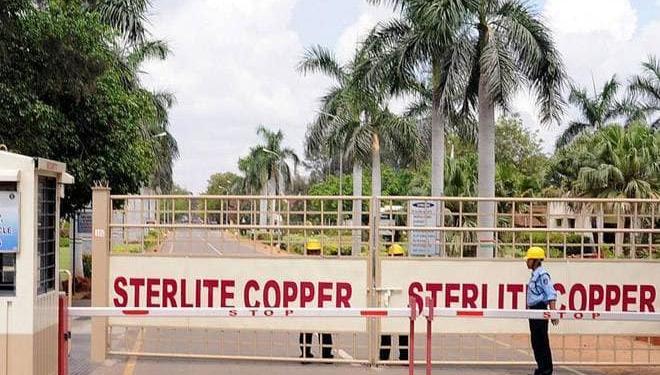Environmentalists have caused immense damage to the Indian economy. The foreign-funded NGOs have repeatedly created hurdles in major development projects and this cost 2-3 per cent in India’s GDP growth, as per a report by the Intelligence Bureau.
The latest example of damage to Indian economy due to environmentalism is the case of Vedanta’s Tuticorin copper plant. India, a net exporter of copper in the last two decades has turned into a net importer in FY 2018-19. The Tuticorin plant accounted for more than 40 per cent of the country’s total copper production, and the closure of plant forced the domestic downstream manufacturers to import copper from countries like Japan.
“Valuable foreign exchange is going out of the country and our cost of production has increased by about 1%, but even a 1% increase amounts to a lot in downstream manufacturing since more than 90% of our cost is incurred on raw materials,” said Shyam Sundar Rathi, chairman of Vidya Wires — a local manufacturer of copper wires.
From 2013-14 to 2017-18, copper production grew at near double-digit (9.6 per cent) and suddenly output fell by 46 per cent in FY 19. The sudden closure of Sterlite plant halted production of 4 lakh tonnes of copper, as the company accounted for 40 per cent of the country’s copper smelting capacity. The total copper capacity of the country is around 10 lakh tonnes.
The total import of copper reached to 14,000 crore rupees in last fiscal year and countries like Japan, Singapore, Congo, Chile, Tanzania, the United Arab Emirates and South Africa benefited from this. Imports rose by 131.2 per cent while the export of copper cathodes fell by 87.4 per cent, from 395-kilo tonnes in FY 18 to 48 KT in FY 19. In the last FY, exports grew by 12.3 per cent while imports grew by 35.6 per cent.
Majority of India’s copper export goes to China (75 per cent) and Taiwan (13 per cent). The closure of Sterlite’s plant benefitted Chinese companies which were facing tough competition from Indian exports. Given the better quality of Indian product, Chinese consumers’ preferred Indian copper and this harmed the interest of Chinese companies.
The owner of Sterlite Copper, Anil Agrawal led Vedanta group has told Madras High Court that the anti-Sterlite protest was funded by Chinese companies which benefit from the closure of the plant. “These companies promoted and funded the agitations and protests against Sterlite. India’s import bill for copper is $2 billion, the demand was being met by Sterlite earlier,” claimed Aryama Sundaram, the legal counsel for Vedanta group.
The Tamil Nadu government had ordered complete closure of the plant in May 2018. But the National Green Tribunal (NGT) cleared the reopening of the plant a few months back. However, the Supreme Court overruled the NGT order and the plant remains non-operational. The matter is sub-judice and the case is pending in Madras High Court.
The company paid 2,200 crore rupees in tax to the government. The state governments should have a more cooperative attitude towards industries. Only initiatives from central government will not help in the economic rise of the country unless every state government is willing to cooperate with industries. It was found that the church was involved in organizing the protests against Vedanta’s Sterlite plant.
It was earlier reported that the churches in the region had appealed to its members to support the Sterlite protest. The magazine had also reported that one of the mobs, comprising of around 5,000 people, had gathered in front of one of the churches in the region before it proceeded to wreak havoc.
The article goes on to claim that according to the Intelligence Bureau, there were Naxal elements among the protestors too and that the police had been tipped off about this. The protests had found traction among many politicians in Tamil Nadu including Kamal Haasan.
So, it seems that the nexus between the some Church elements, Naxals and the foreign, particularly the Chinese competitors of Vedanta, may have succeeded in hurting the economic interests of India, Tamil Nadu, and the poor people in the region due to the lacklustre attitude of state government.
